1. Feeding Wild Monkeys Can Make Them Aggressive
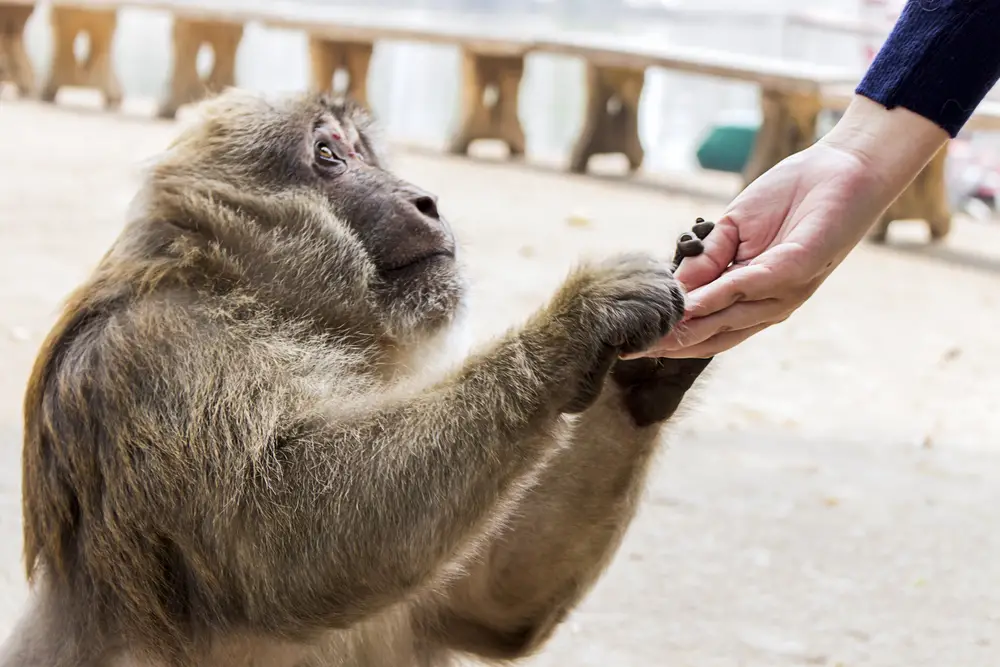
When you feed wild monkeys, you’re not just giving them a treat—you’re teaching them to associate humans with food. According to National Geographic, this behavior can lead to aggression as monkeys lose their natural fear of people. They may begin demanding food and even snatching it from your hands, bags, or pockets. What starts as a seemingly innocent interaction can escalate into dangerous confrontations, especially in areas where monkeys and humans frequently cross paths.
Aggressive monkeys can pose a serious threat to humans, including small children and the elderly. It’s not uncommon for people to suffer bites or scratches during such encounters, and these injuries can lead to infections or require medical attention. Remember, these are wild animals, not pets—they’re unpredictable and can quickly become hostile when they feel threatened or frustrated.
2. It Disrupts Their Natural Diet

Monkeys have evolved over thousands of years to thrive on a diet found in the wild, such as fruits, insects, and leaves. According to the Journal Of Wildlife Management, when you introduce human food into their diets, it can cause serious health issues. Foods like bread, chips, or sugary snacks are not only unnatural but can also lead to malnutrition and other long-term health problems. Monkeys may even develop a preference for junk food, abandoning their natural foraging habits entirely.
This dietary shift doesn’t just harm individual monkeys—it can impact the entire troop. If some members start relying on human handouts, it can create competition and disrupt their social dynamics. Over time, these changes can have a ripple effect on the local ecosystem, as monkeys stop playing their role in seed dispersal and other ecological processes.
3. Feeding Monkeys Encourages Dependency
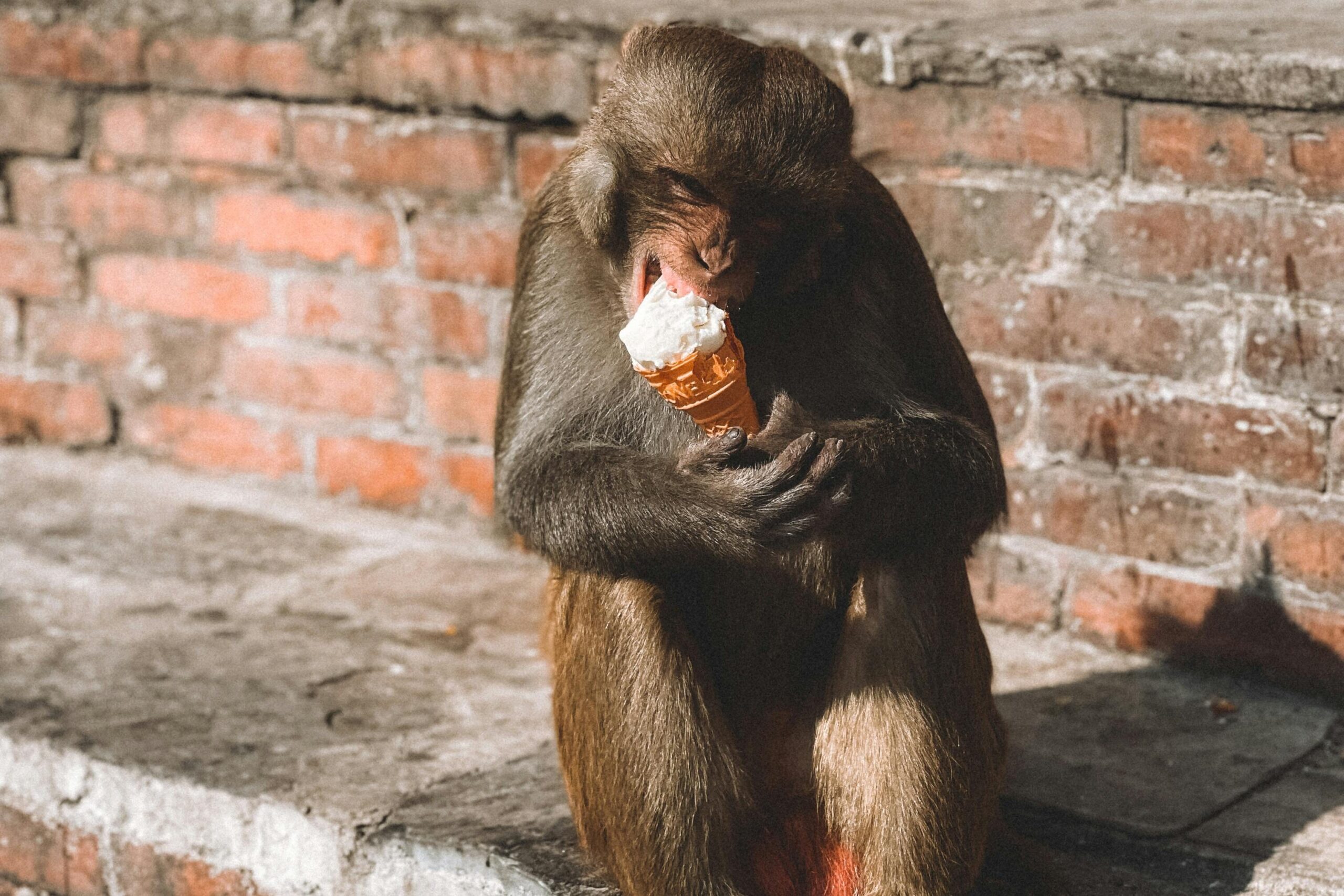
When wild monkeys start depending on humans for food, they lose the skills needed to survive on their own. Foraging is an essential part of their natural behavior, and feeding them disrupts this instinct. Instead of looking for food in their habitat, they’ll wait for humans to provide it, which weakens their ability to fend for themselves during tough seasons.
Dependency on human food can also make monkeys more vulnerable to starvation if the food supply suddenly stops. For example, in tourist-heavy areas, monkeys accustomed to being fed may struggle when visitor numbers dwindle. By feeding them, you’re essentially teaching them to rely on an unreliable food source, which puts their survival at risk.
4. It Increases Human-Monkey Conflict
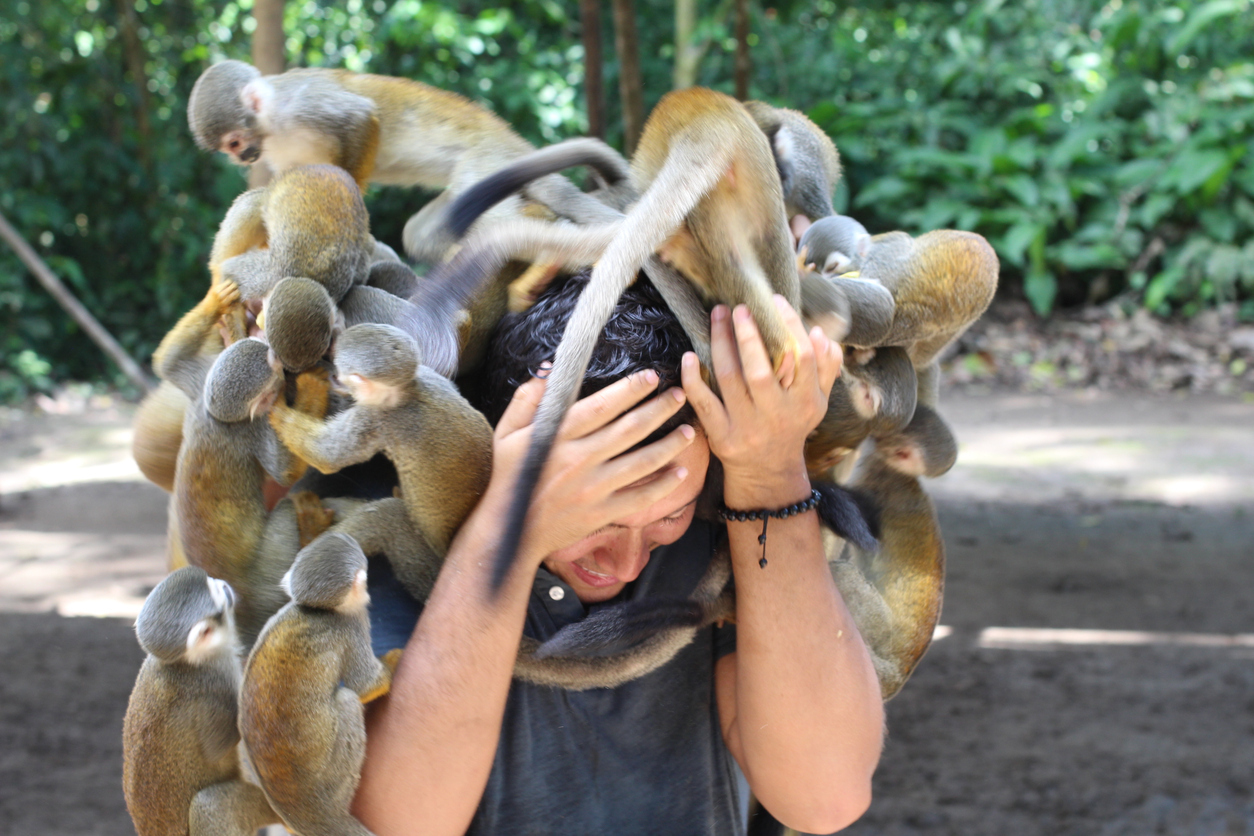
Feeding monkeys might seem like a fun, harmless activity, but it often leads to more frequent and negative interactions between humans and these animals. Monkeys that are fed by humans become bolder and more comfortable approaching people. While this might seem cute at first, it often leads to property damage, food theft, and even physical altercations.
As monkeys lose their natural wariness of humans, communities living near their habitats often bear the brunt of these conflicts. People may resort to aggressive measures to protect their homes or belongings, which can harm or even kill the monkeys. What begins as a kind gesture can snowball into a serious problem that’s harmful to both humans and wildlife.
5. It Exposes Monkeys to Harmful Human Food
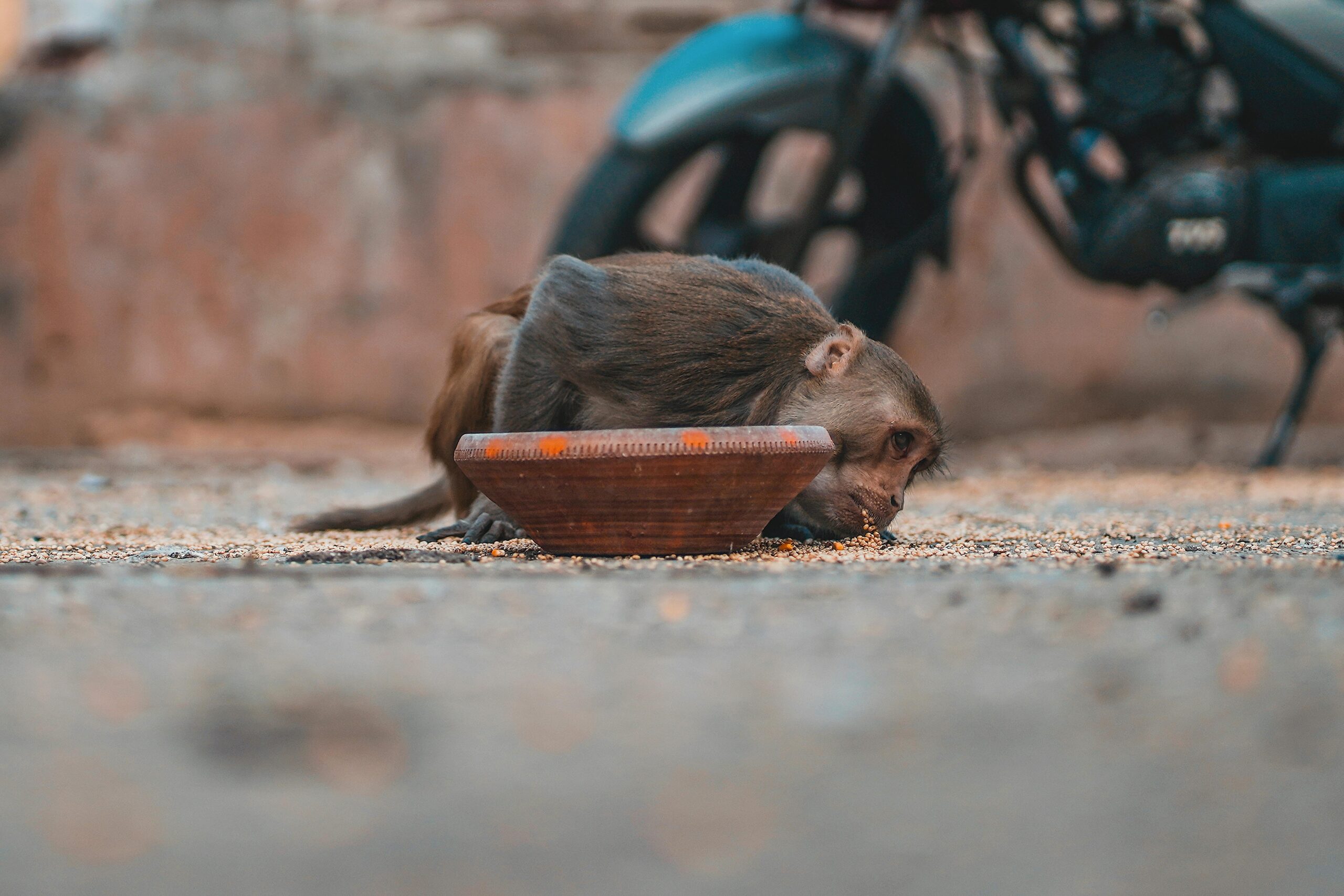
Human food is not monkey food—period. Many items we consume, like processed snacks, sugary drinks, and salty treats, are incredibly harmful to their digestive systems. Monkeys may appear to enjoy eating these foods, but the long-term effects can be devastating. They may suffer from obesity, diabetes, or other diet-related health issues.
Moreover, feeding them food wrapped in plastic or foil can lead to accidental ingestion of harmful materials. Monkeys are not aware of what’s safe to eat, and they often end up swallowing packaging or other inedible items. This can lead to internal injuries, blockages, or even death, all because someone thought they were being kind by sharing their snack.
6. Feeding Wild Monkeys Harms the Ecosystem
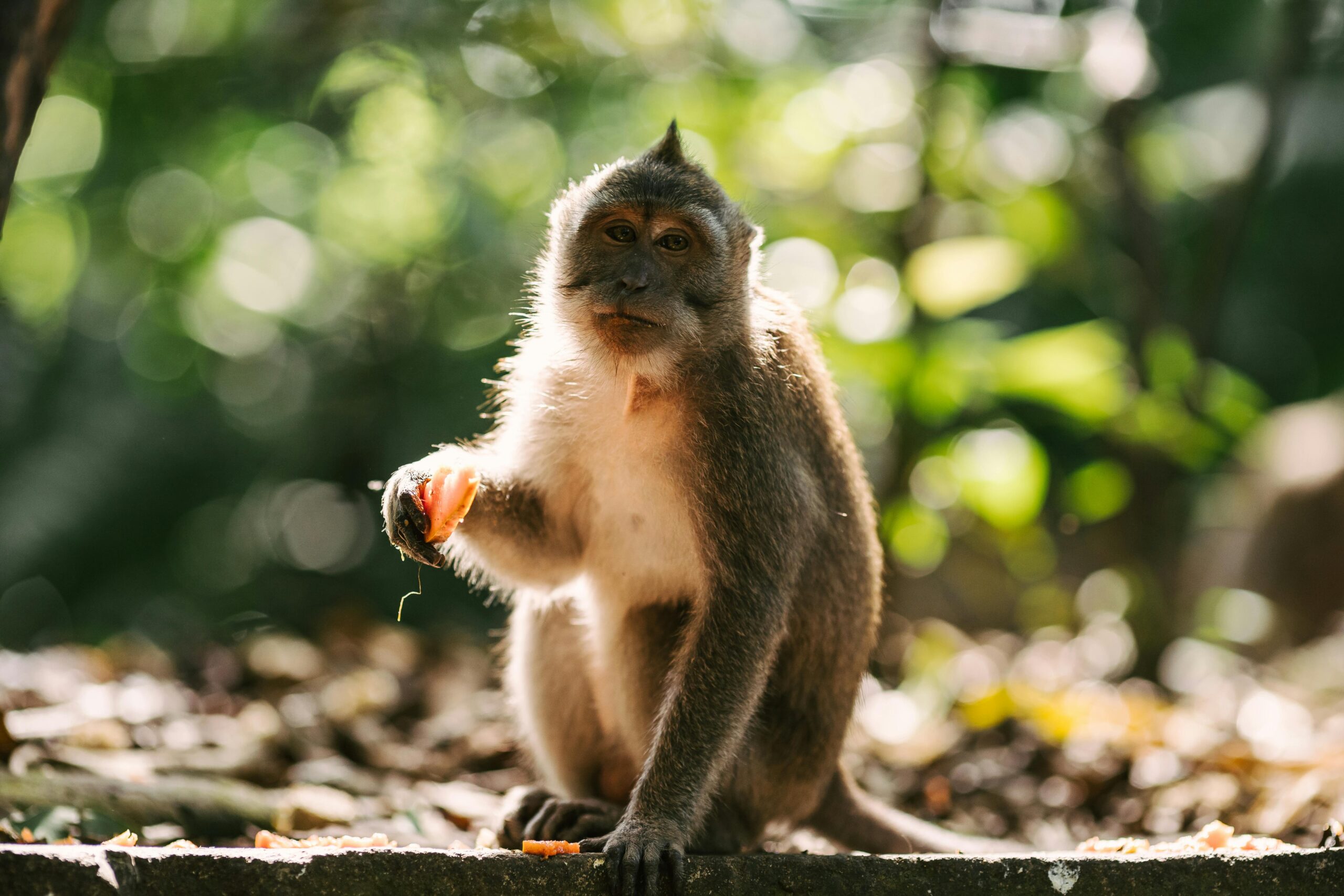
Monkeys play a crucial role in their ecosystems, from pollinating plants to dispersing seeds that help forests grow. By feeding them, you disrupt their natural behaviors and their contributions to the environment. When monkeys rely on human food, they spend less time foraging, which means fewer seeds are scattered across the forest floor.
This disruption might seem small, but over time, it can lead to changes in the local ecosystem. Trees and plants that depend on monkeys for seed dispersal may decline, affecting other animals that rely on them for food or shelter. Feeding wild monkeys doesn’t just harm them—it harms the delicate balance of the entire habitat they call home.
7. It Spreads Diseases Between Humans and Monkeys

Monkeys can carry diseases that are transmissible to humans, such as herpes B virus and tuberculosis. When you interact closely with them, especially during feeding, the risk of transmission increases significantly. Even a small bite or scratch can expose you to potentially life-threatening infections.
On the flip side, humans can also pass diseases to monkeys. Our germs can be just as harmful to them as theirs are to us. Feeding them creates unnecessary opportunities for disease exchange, which can have devastating consequences for both parties. The best way to keep both humans and monkeys safe is to maintain a respectful distance.
8. It Encourages Overpopulation in Certain Areas
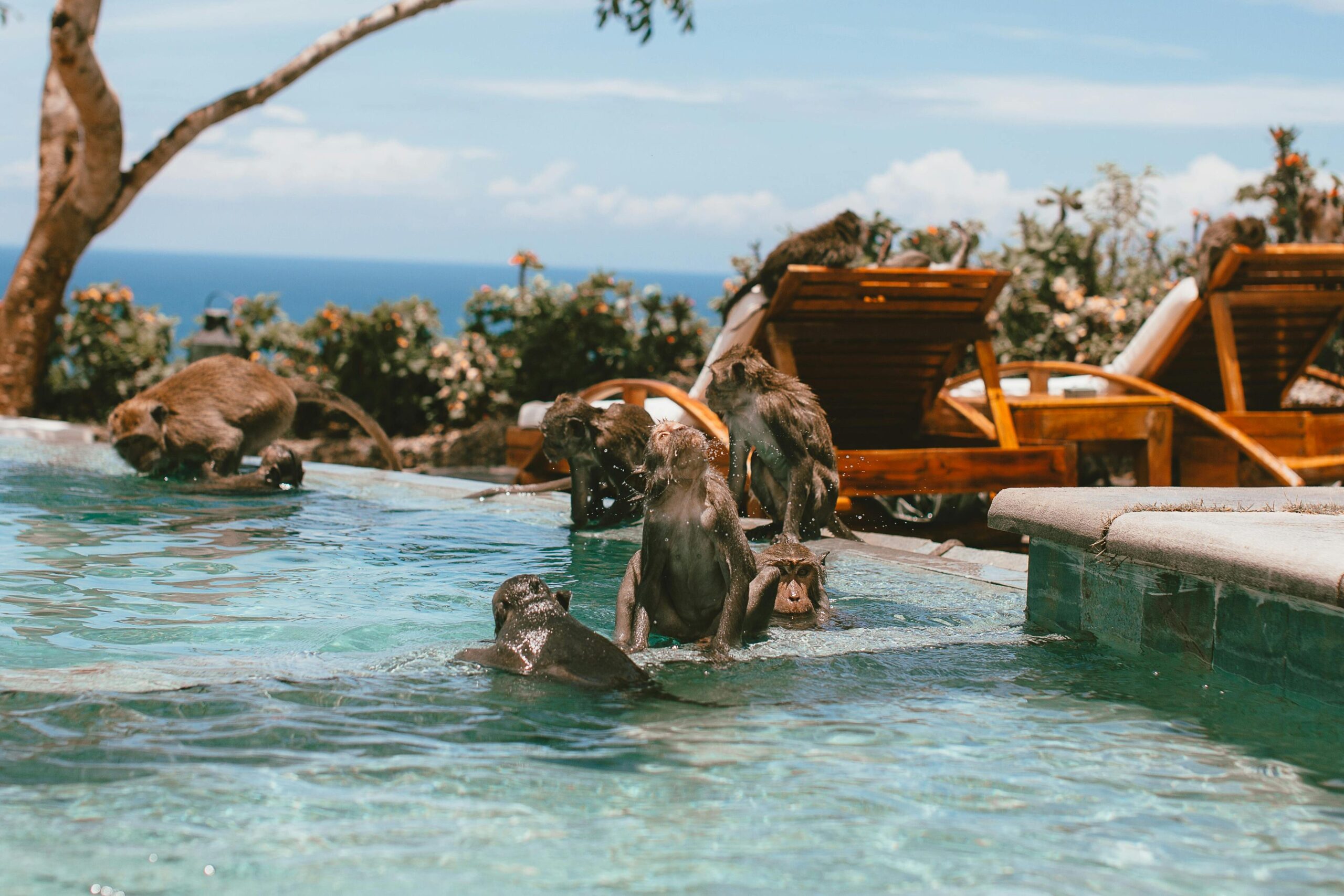
Feeding wild monkeys may seem harmless, but it can unintentionally lead to overpopulation in specific regions. When food becomes easily accessible, monkeys reproduce at a faster rate because they no longer need to worry about limited resources. This population boom may sound adorable, but it brings its own set of problems. Overcrowding leads to increased competition for space, resources, and dominance within troops, resulting in more frequent fights and injuries among the monkeys themselves.
Moreover, an inflated monkey population can stress the local ecosystem. With too many monkeys relying on the same area for food and shelter, plants and other animals often suffer. This imbalance can even lead to starvation among the monkeys when human food is unavailable. By feeding them, you’re inadvertently creating a cycle that harms not just the monkeys but the entire environment they live in.
9. It Teaches Bad Habits That Are Hard to Break
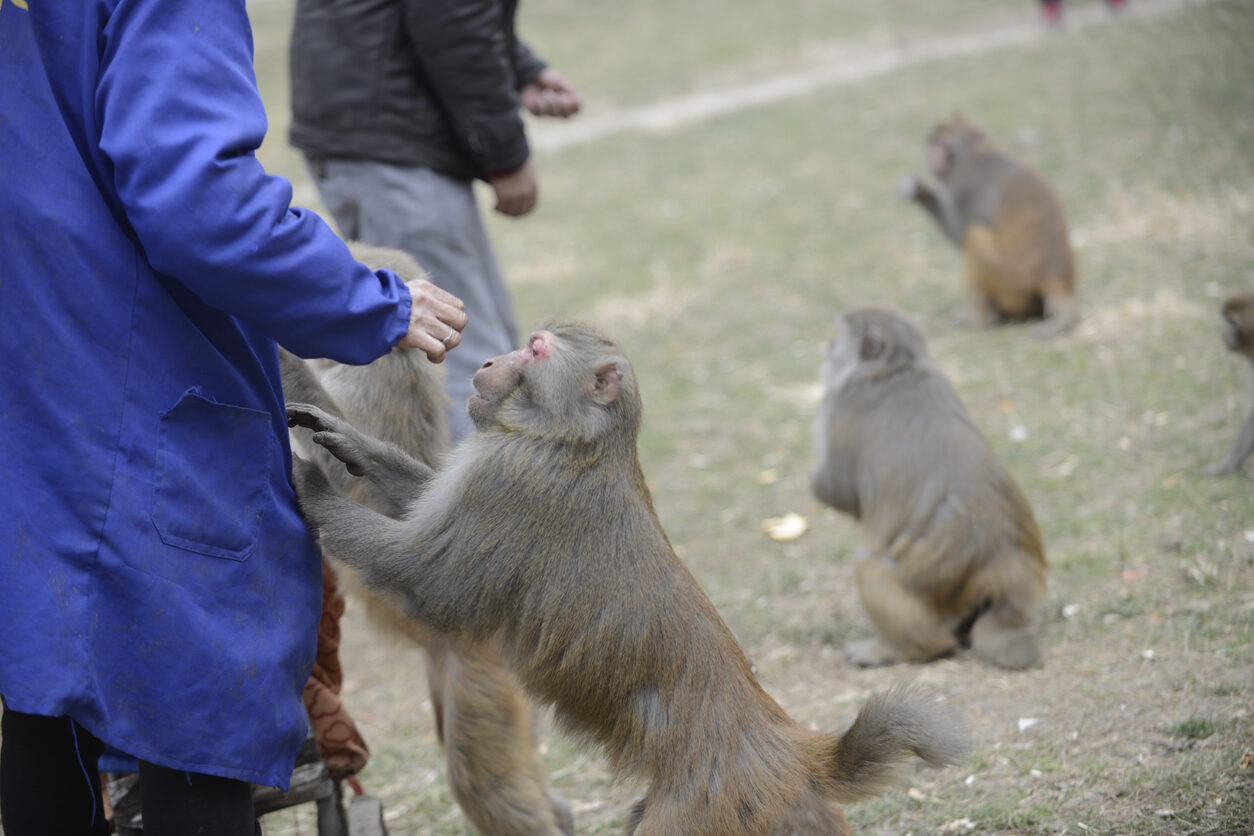
Monkeys are incredibly intelligent animals, and they quickly learn behaviors that seem to get them results. When you feed them, you’re teaching them that approaching humans is a good way to get food. Once this behavior becomes ingrained, it’s almost impossible to reverse. Monkeys that associate humans with food can become nuisances, raiding homes, attacking tourists, and even ambushing cars for snacks.
These bad habits don’t just make life harder for humans—they can also put the monkeys at risk. In many places, aggressive or food-seeking monkeys are relocated or euthanized as a “solution” to the problem. What starts as a moment of kindness on your part could lead to tragic consequences for the animals down the line.
10. It Creates an Unnatural Social Hierarchy
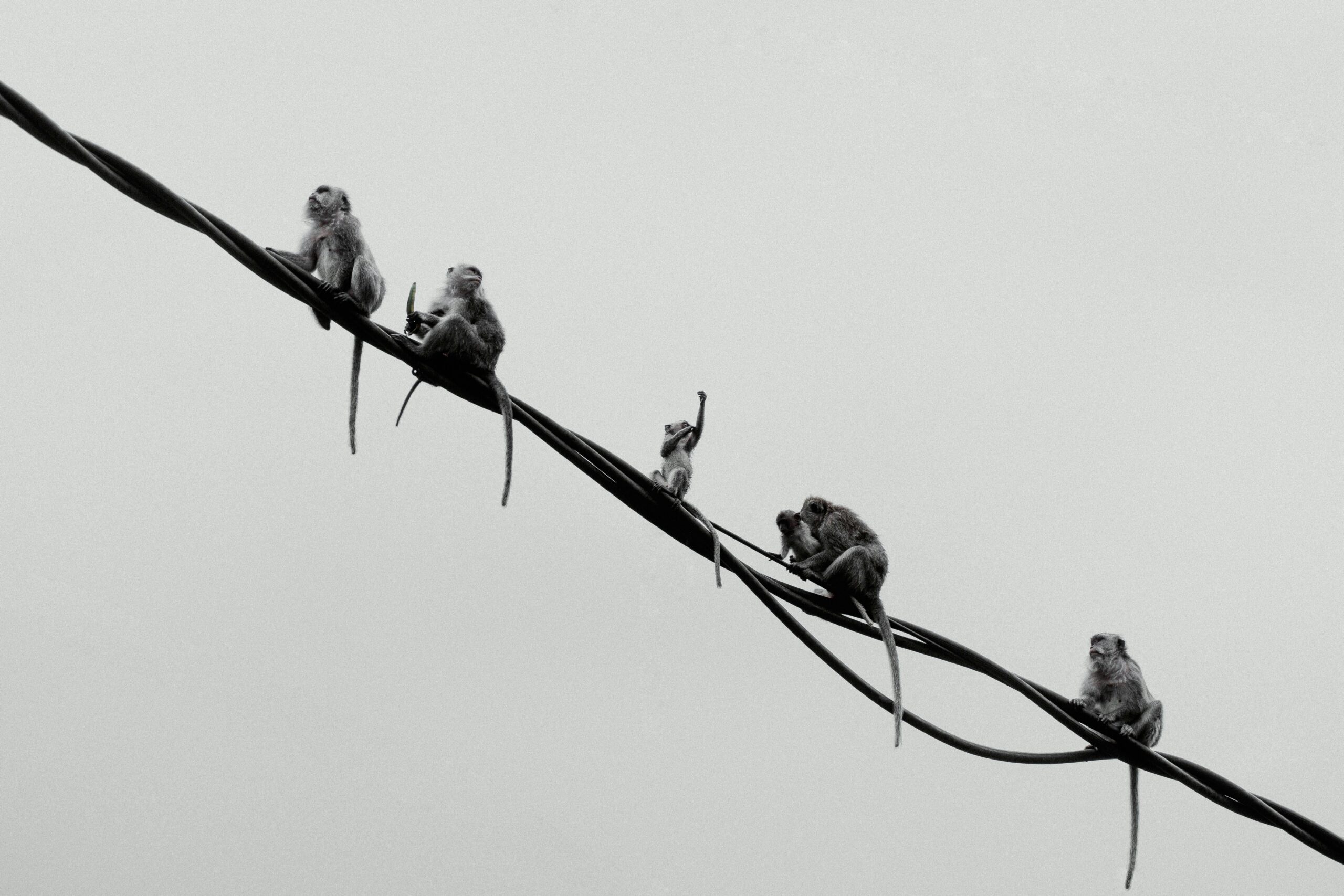
In monkey troops, social dynamics are carefully maintained based on dominance, alliances, and resource availability. When you feed monkeys, you unknowingly interfere with these dynamics. For example, a lower-ranking monkey might suddenly gain access to food it wouldn’t normally have, upsetting the troop’s established order. This can lead to infighting, stress, and even injury among the monkeys as they struggle to adapt to the new dynamic.
Additionally, monkeys that hang around human-populated areas may separate themselves from their original troops. This isolation can leave them vulnerable to predators or cause them to miss out on essential social interactions. By feeding them, you’re not just disrupting their eating habits—you’re altering their entire way of life, often for the worse.
11. Feeding Monkeys Can Attract Other Wildlife
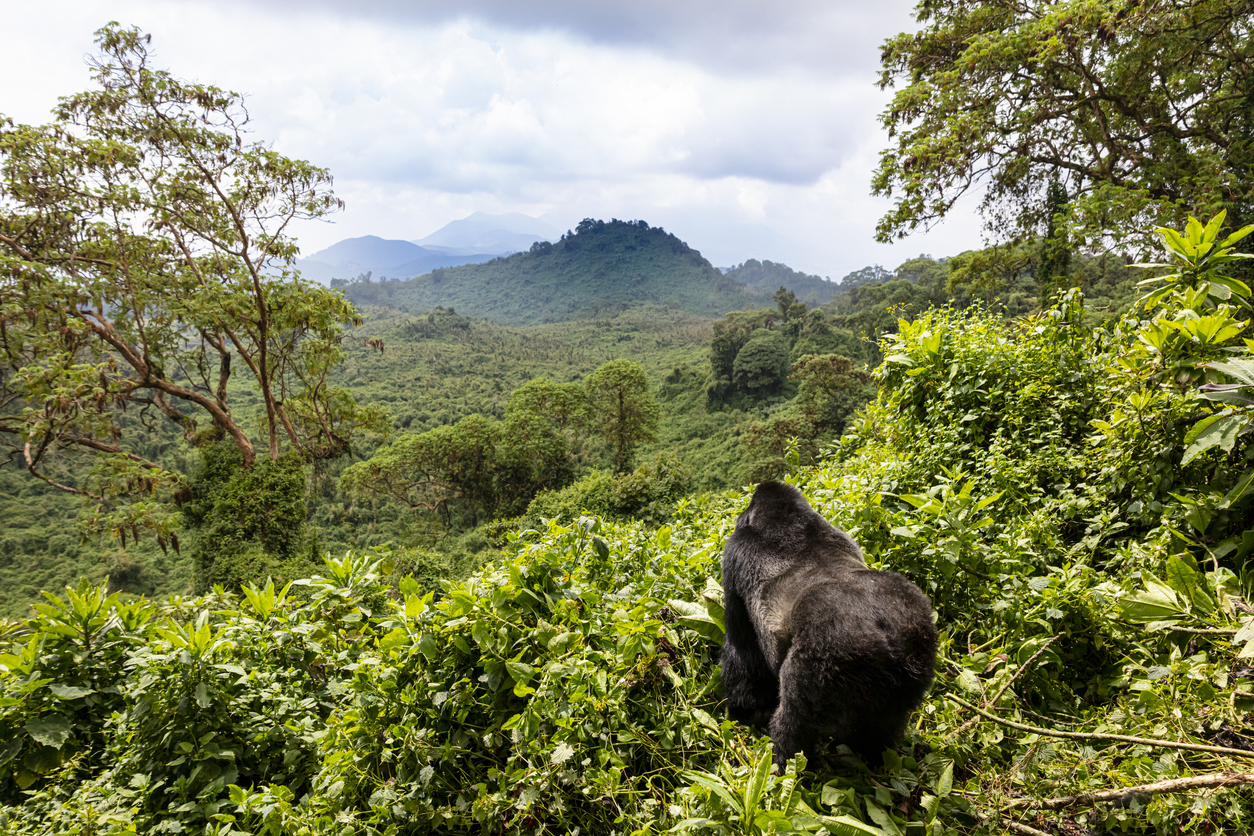
When you feed monkeys, the food you provide doesn’t always stay with them. Leftovers, crumbs, or even the scent of the food can attract other animals, including rats, stray dogs, and even larger predators. This unintended consequence can create a dangerous situation for both the monkeys and nearby humans. Predators may target monkey troops more frequently, or conflicts may arise between different species competing for the same food.
For humans, the arrival of unwanted animals often brings new risks. Rats, for instance, are notorious carriers of diseases and can quickly multiply in areas with an abundance of food. Stray dogs may become aggressive, and larger predators could pose direct threats to human safety. Feeding monkeys might seem harmless, but it’s a slippery slope that invites chaos into the ecosystem.
12. It Disturbs Natural Animal-Human Boundaries

Wild animals, including monkeys, thrive when they maintain a healthy distance from humans. Feeding them blurs these natural boundaries, causing them to view humans as part of their environment. This can lead to monkeys becoming overly comfortable around people, entering homes, climbing on vehicles, or even following tourists. While these behaviors might seem amusing at first, they can quickly escalate into problematic interactions.
Over time, this lack of boundaries can erode the respect monkeys have for humans. They may start viewing people as a means to an end rather than potential threats, making it harder for wildlife authorities to manage them safely. By feeding monkeys, you’re inadvertently teaching them to ignore their instincts, which puts everyone involved—humans and animals alike—at risk.
13. Feeding Wild Monkeys Is Often Illegal
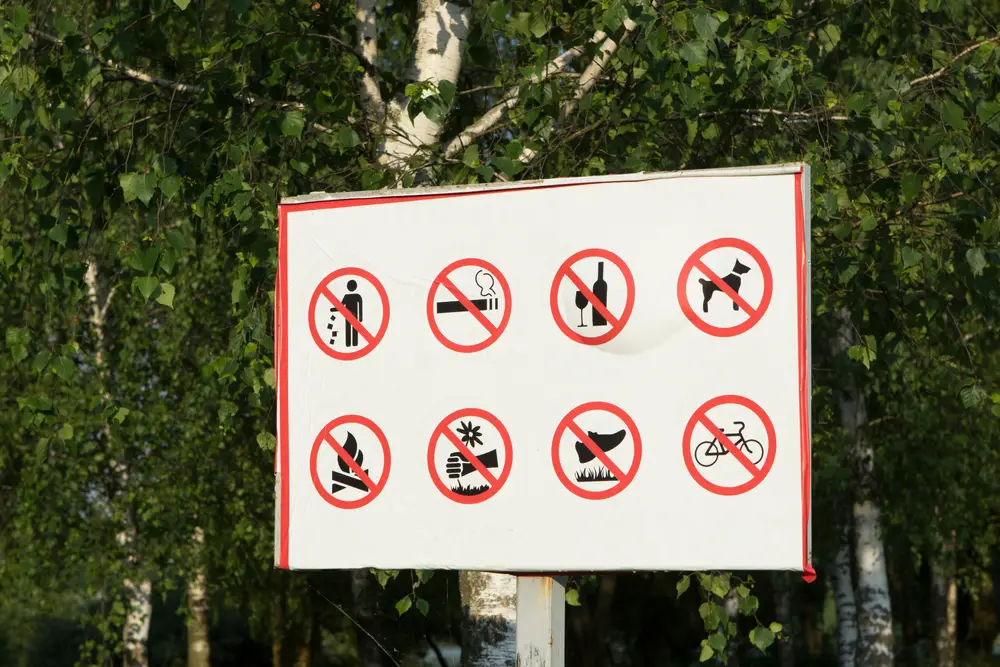
In many regions, feeding wild animals, including monkeys, is explicitly prohibited by law. These regulations exist for good reason: they protect the animals, the environment, and the people living nearby. Feeding monkeys can result in hefty fines, and in some cases, repeat offenders may even face jail time. The authorities recognize that this behavior causes more harm than good, which is why they’ve implemented strict rules to discourage it.
Beyond the legal implications, feeding monkeys can also make you unpopular with locals. Communities that have dealt with monkey-related issues often have little patience for tourists or residents who continue to feed them. By respecting these laws and guidelines, you’re not only protecting yourself from legal trouble—you’re also supporting the long-term well-being of the monkeys and their habitat.


